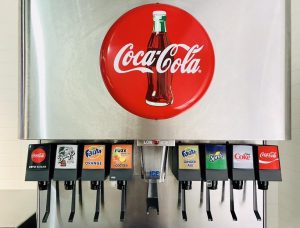By Lydia Parker

America is facing an obesity epidemic. For such an alarming statement, it has little shock effect at this point for most Americans. For many, Americans and their poor eating habits are a foregone conclusion.
However, there are those who are seeking to curb the obesity issue and force processed food producers to alter their products for the health of consumers. According to The New York Post, “The National Salt and Sugar Reduction Initiative,” a joint effort from nearly 100 different health departments across the U.S., “wants less sugar in drinks, pastries, cake and cookies, dry mixes, frozen desserts, candies, breakfast cereal, dessert toppings and yogurt.”
According to The Post, these health departments, including the New York City Department of Health, want processed food and beverage companies to reduce the sugar content in their products by 20% by 2025. The Post reports the motivation behind this move is America’s overconsumption of sugar, which increases risks for “diabetes, hypertension, stroke, heart disease and cavities.”
Despite the well-intentioned policy move by these health departments to decrease health risks for consumers nationwide, should these departments really meddle with something like the sugar content in food products?
The health choices of an individual should be solely their responsibility. If a consumer makes the decision to eat processed foods with a high sugar content, that is their choice and they are allowed to make it.
Health departments monitoring the production of food and beverage companies to prevent the use of harmful chemicals, additives or other ingredients is understandable and part of their responsibilities. Government agencies, like U.S. health departments, are vital tools for monitoring the cleanliness of public water sources, helping to prevent or combat the spread of food-borne illnesses and overseeing other aspects of public health.
However, seeking to alter the sugar content in processed foods and beverages seems to be an unnecessary policy move by U.S. health departments. There is an element of free will and responsibility involved in what consumers put in their bodies. Yes, the overconsumption of sugar can lead to health risks, but Americans across the country are allowed to smoke cigarettes and consume alcohol, which undoubtedly cause more damage and health risks for consumers than sugar.
America is a nation of consumers and a capitalist-driven economy. Americans should be allowed to make their own decisions about their food choices and health, for better or for worse. The government should not be allowed to dictate how much sugar food and beverage companies use in their products.
Is it healthy to consume more sugar than the recommended daily amount? Of course not, but it’s the right of the consumer to make these decisions for themselves.
No company should use harmful chemicals or ingredients in their products, but sugar should not fall under this category of “dangerous chemical,” because its risks lie in its overconsumption. If a consumer chooses to overindulge in processed foods with high sugar contents, they must take on the resulting consequences. Most health professionals will stress the importance of moderation in the consumption of substances like sugar. We should not demonize sugar because of a consumer’s decision to overindulge.
Further, cutting the sugar content by 20 percent in processed foods and beverages cannot have a significant effect on consumer health. Consuming a Twinkie will always be an unhealthy choice, regardless of its lowered sugar content.
Although well intentioned, policies like the National Salt and Sugar Reduction Initiative do little to actually improve public health.
Requesting that food and beverage companies reduce sugar content could have unintended effects on major food companies like Hostess, the producer of the cult favorite snack cake the Twinkie. If these companies reduce their sugar content by 20 percent over the next few years, lower sugar content could simply give companies a new marketing strategy. ‘Twinkies, now with 20 percent less sugar!’
Food and beverage companies that produce popular processed foods will always be trying to appeal to consumers. The high sugar content in products affects taste, so should the sugar content be reduced, companies will likely use artificial sweeteners instead. These artificial sweeteners are no healthier than sugar, and they come with their own health risks.
Clearly, the obesity and health epidemic in America will not be solved by cutting the sugar content in processed foods and beverages by 20 percent.
Other states should reflect on the policies made by the states behind the National Salt and Sugar Reduction Initiative and realize that actions cutting sugar contents will have little positive effect on public health; they are simply replacing one problem with another.
Lydia Parker, FCRH ’20, is an English major from Beverly, Massachusetts.






































































































































































































